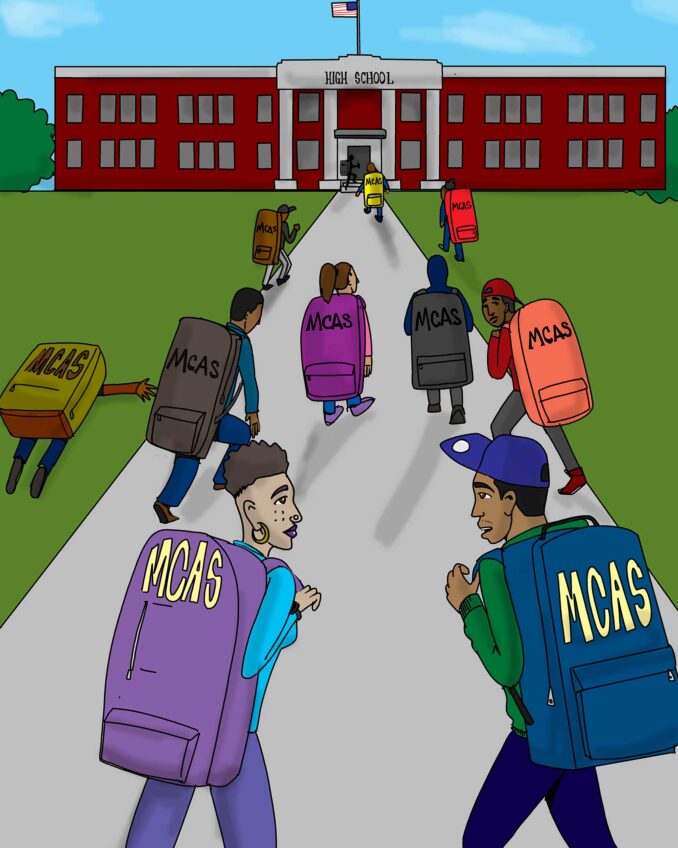
“It takes a village …”
| | “And Lord, thanks for sending us Barack Obama.” |
A study released last week revealed that members of the class of 2000 from Boston public high schools have not fared too well in college. Seven years after high school graduation, only 35.5 percent had earned a one-year certificate, an associate’s degree or a bachelor’s degree.
As might be expected, the post-high school dropout rate was highest among blacks and Latinos. Only 23.9 percent of Latinos and 28.2 percent of blacks that enrolled in post-secondary programs completed them in the time period studied. On the other hand, 53.3 percent of whites and almost the same number of Asians were able to earn degrees during that span.
The study resulted from an analysis of National Student Clearinghouse data by the Center for Labor Market Studies at Northeastern University. As discouraging as the Northeastern study might be, a report by the Boston Plan for Excellence in the Public Schools indicates that Boston’s results are roughly equivalent to national data.
Mayor Thomas M. Menino immediately announced a plan to improve city high school students’ preparation for college. The Boston Foundation pledged $1 million for the program for this year and each of the next four years. While this program is indeed welcome, this is a good time to consider some aspects of the solution that have heretofore been ignored.
There is an old African aphorism that says, “It takes a village to raise a child.” Sen. Hillary Clinton popularized the proverb when she referenced it in the title of her 1996 book. Unfortunately, today’s urban communities are so large that they hardly function like villages, which often leads to the loss of a sense of interdependence.
That leaves children solely dependent on the effectiveness of their parents. There was a time when parental guidance was enough to steer children on the right path, but now the competition for youngsters’ attention is too great. Television, the Internet, video games and cell phones provide extraordinary communications distractions. Then there is the influence of unbridled peers. Even well-intentioned parents are losing the battle for their children’s attention.
Geoffrey Canada, the founder and president of Harlem Children’s Zone, understands the importance of the village concept. He has created a special community that provides a comprehensive system of free supports to combat poverty and improve education for children and families in Harlem. It is unlikely that a similar project can be developed in Boston because of the expense; the Harlem project’s budget this fiscal year is over $40 million. However, it is possible, and indeed necessary, to restructure some of our community values. Of course, that can be done only with the consent of the people.
The election of Barack Obama has engendered a spirit of optimism in the African American community. People want “change,” not only in their government, but also in their own lives. There was a time, not too many years ago, when people respected academic achievement. They were proud of the scholarly success of other village residents, and didn’t denigrate the intellectually gifted.
Many Roxbury residents of an older generation grew up with such a sense of pride in their community. These elders can be organized to serve as a core group to mobilize the community around academic achievement. Such an endeavor would require sustained and concerted effort, but the need is dire and the reward could be tremendous.
Parents are overwhelmed with the effort of sustaining their families in these economically perilous times. The effectiveness of programs to improve academic performance will suffer without the development of the village to help pick up the slack.






